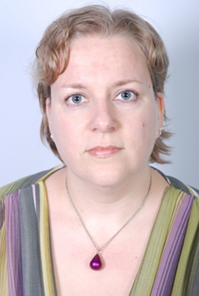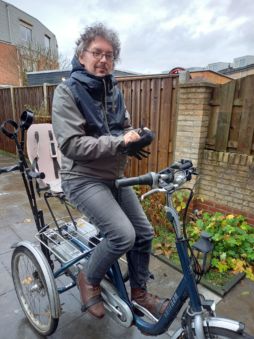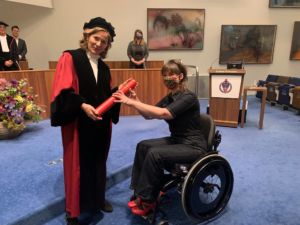Committee calls for culture change: ‘Too little attention to people with disabilities’
-
 Foto via Pixabay
Foto via Pixabay
To get to the root of the inaccessibility problem, the disABILITY and Accessibility Committee set up last year is looking into the university policy. According to committee members Nusi Cornelissens, Nynke van den Boomen and Wim de Jong, a culture change is needed, but the university sometimes reacts too rigidly.
That even Radboud University’s newest building is not entirely accessible does not surprise Nusi Cornelissens. Society is set up for the average person, she explains. Think of someone who has no disability and is sick for a week at most every year. ‘That average student and employee also roam the corridors here. Anyone who deviates from that norm constantly notices this. In everything you do, you have to sound the alarm and let others know what you need. Society taking you into account is apparently something you have to constantly ask for.’
‘Diversity and inclusion are often talked about, but you don’t read anything about people with disabilities anywhere’
As chair of the disABILITY and Accessibility Committee that was set up last year, Cornelissens wants to change that. The committee, housed in the central Diversity, Equity, and Inclusion Office, is made up of students and staff committed to the university’s accessibility. The aim is to create awareness and act against ableism, the discrimination against people with disabilities.
Diversity
That topic gets too little structural attention, according to Cornelissens. ‘We often talk about diversity and inclusion, also at Vox, but you never read anything about people with disabilities. The concept of equity is never mentioned either, even though it is so important for people with disabilities to have equal and proportional opportunities. That is why I am so happy that this committee is now part of the DEI Office.’
Inclusion of blind students
One of the subcommittees of the disABILITY and Accessibility Committee focuses on the accessibility of our campus and education for blind and visually impaired students. On 17 March, Nusi Cornelissens will give a workshop on this topic to teachers, students, and support staff. The workshop will take place at 10.30 am in EO 00.270. You can sign up via [email protected].
Cornelissens emphasises that the committee is not only concerned with the physical accessibility of the campus, but also, for example, with students and staff with autism or an anxiety disorder. She hopes that students and staff who encounter problems can find their way to the disABILITY and Accessibility Committee. ‘Then we can amplify those signals and refer people to the right person. But ultimately, we are there to look at university policy. We want to address structural problems and not just come up with individual solutions.’
The current university policy sometimes focuses too much on tackling problems individually, Cornelissens believes. This can be seen, for example, in the absence of a central service to which employees with disabilities can turn. ‘Students can contact the student dean, but there is no comparable alternative for employees. If you have a functional disability, you will have to discuss it with your supervisor.’
This does not always go well, says Cornelissens, because few supervisors are specialised in such guidance. ‘For example, they do not always know what the legal rights and obligations are when you hire someone from the Participation Act. Sometimes they ask the employee themselves how they would like to solve a problem, while the employee actually needs their advice on the available options.’ Moreover, employees sometimes feel hesitant to go to their supervisor. ‘Those who have an anxiety disorder will not always share that easily, because your supervisor is the one who determines whether or not you function well.’
So far, Cornelissens is getting positive responses to the committee’s initiatives, and she is pleased with the support of the DEI Office. Still, she is cautious about her expectations. ‘Positive reactions are obviously not the same as actual changes in policy. And nice words are not enough. If policy looks nice on paper but the implementation is not great, it remains a pain point.’
Culture change
Like Cornelissens, Nynke van den Boomen and Wim de Jong, both former employees of Radboud University and members of the disABILITY and Accessibility Committee, believe that the inclusion of people with disabilities requires a systematic approach. As former staff members of the Faculty of Arts – they both have a PhD in history – they focus mainly on the inclusion of academics with disabilities. They think not only about the physical accessibility of buildings, but also about things like flexible working conditions.
‘The university tends to be very rigid with contracts’, says De Jong, now a postdoc at the Open University and working in Nijmegen until last year. ‘You are supposed to fit into the standard model and be able to work four or five days a week, but there are also PhD students who can only work three days. They could complete their PhD in six years. If you get a bit more creative and flexible with that, you greatly increase the space for people with disabilities to do PhDs.’
According to De Jong, there is not enough flexibility at the moment. ‘You notice that discussions about this are very difficult, as if you end up in some kind of mud. There is little out-of-the-box thinking. That is also a sign of the culture at the university. For a long time, there was an obsession with excellence and talent, and by that they meant people who can work 60 hours a week.’
Van den Boomen, who received his PhD in 2021, thinks we should redefine those terms. ‘Excellence means that, as a university, you want to get the best thinkers together. And the fact that you spend 60 hours a week pacing around in your study room from early morning to late at night does not mean that you are a good thinker. We have to dare to attack that value as a community.’
Management language
Together with the other committee members, De Jong and Van den Boomen organised an event in April 2022 to connect university administrators with students and employees with disabilities. They both left with mixed feelings. On the one hand, Van den Boomen thought it was great to bring everyone together in one room: students, deans, the rector, politicians, activists. ‘It was the opening move of a larger conversation.’
‘A colleague told me to say absolutely nothing about my disability’
At the same time, she was left with a sense of dissatisfaction. ‘What I struggle with a lot is that in many organisations, like a university, change is mostly on the surface. You hear a lot of management language on such a day. But if you are not able to go through a transformation benevolently, then it remains lip service.’ She fears that there are many pretty words, and little action. ‘The words diversity and inclusion have of course been very trendy, you couldn’t get around them for a while. But it is not a fad.’
True inclusion is like a change in the DNA of your organisation, says Van den Boomen. ‘The core is looking critically at your own values. How do we think about ourselves? Who do we see as part of the academic community and who do we not?’ From her own experience, she knows that PhD students with disabilities are sometimes told that the wheat is separated from the chaff, and that it is quite clear on which side they belong. ‘Do we really want to propagate that?’
De Jong agrees that a change in academic DNA is badly needed. ‘You notice this in the fact that there are so few people at university who dare to come out and say that they have a disability.’ De Jong himself was diagnosed with MS during his PhD project. ‘A colleague told me to say absolutely nothing about it. That marks the fear. You don’t want to be associated with stigmas. Then you’re no longer the hip VENI-bringing academic with the nice shirt and watch, that poster boy of academics.’
Translated by Jan Scholten






